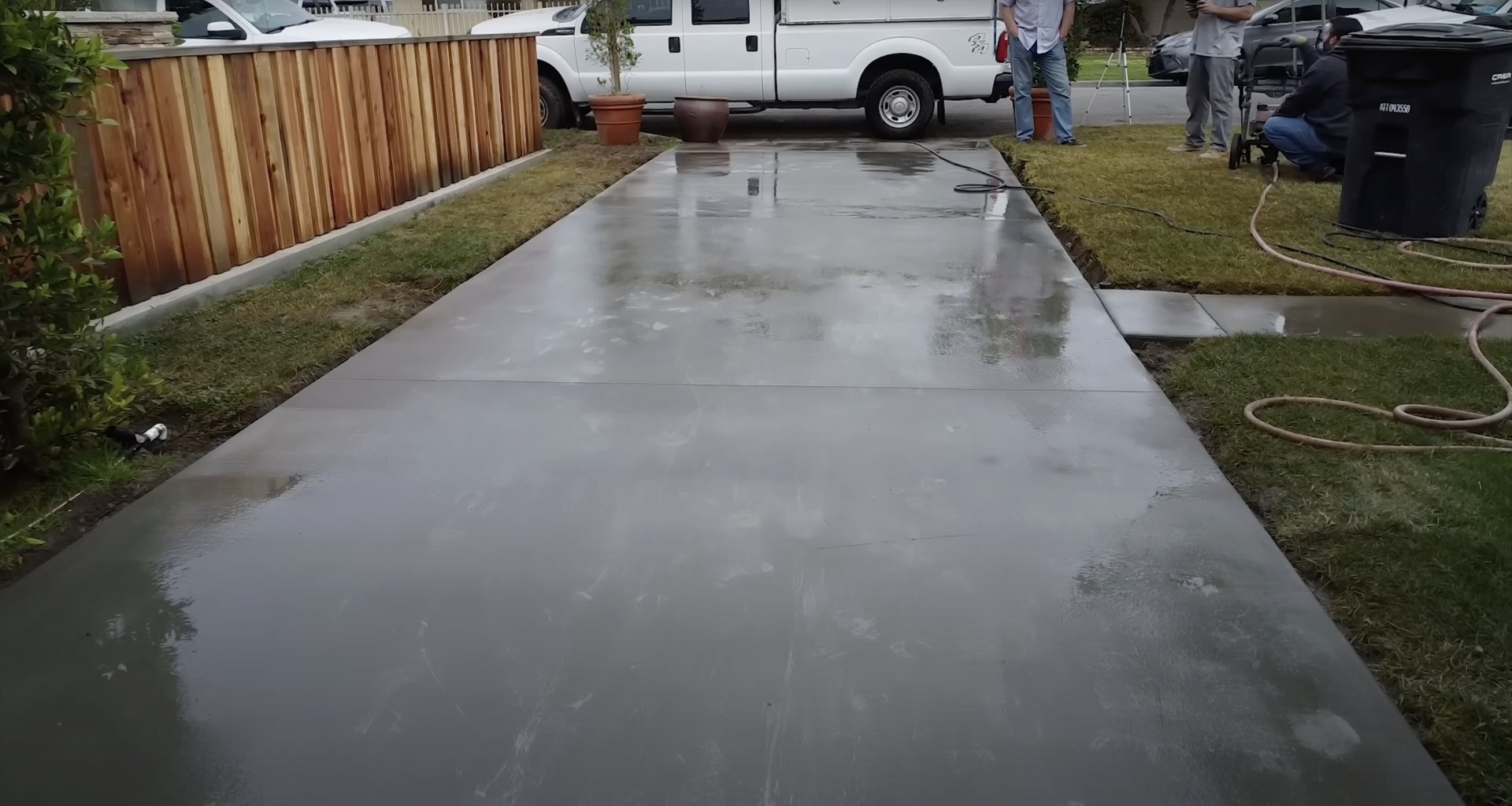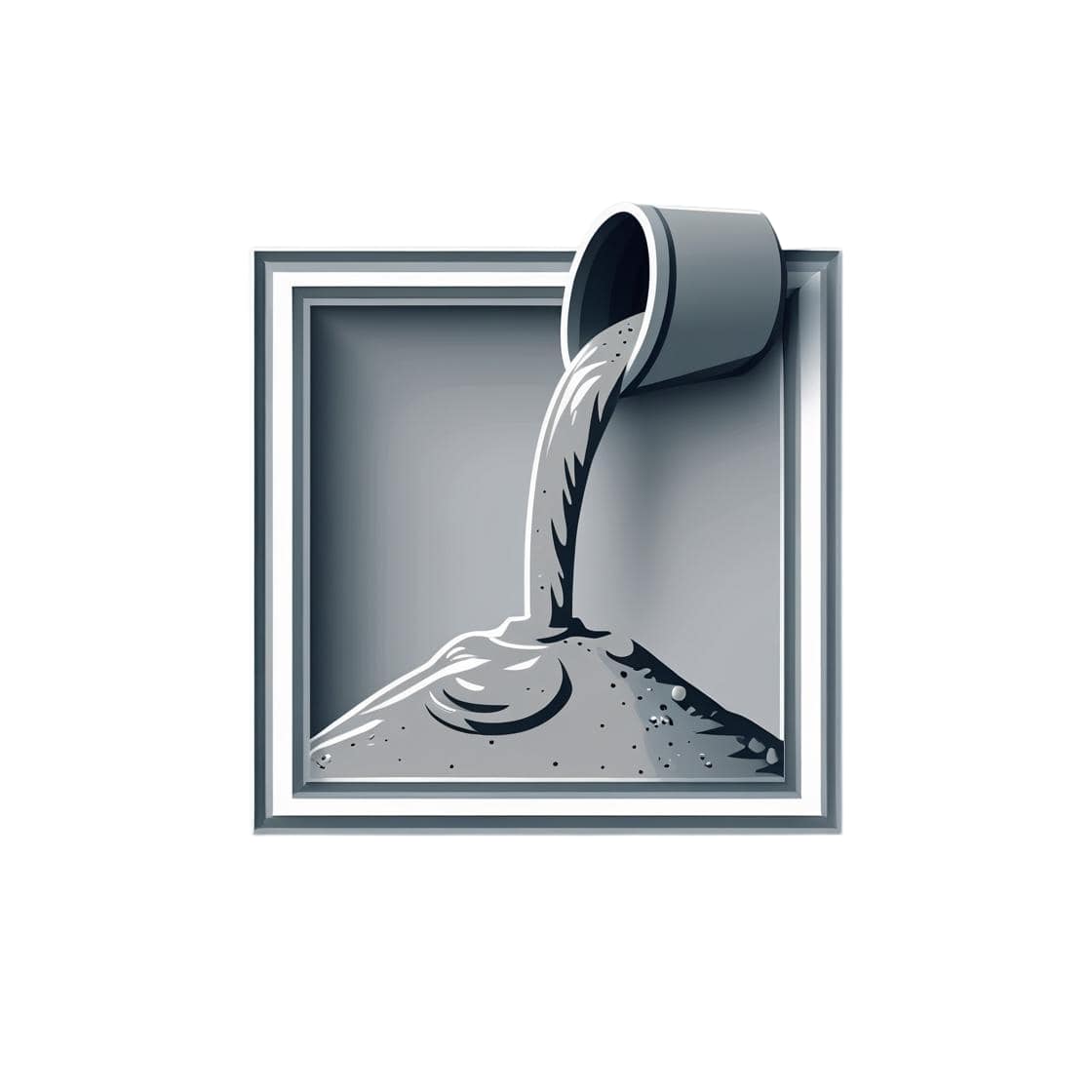5 Signs Your Concrete Driveway Needs Repair (And What to Do About It)

Your driveway takes a beating every single day. Between heavy vehicles, Florida's intense sun, sudden rainstorms, and the occasional tropical storm, it's no wonder concrete driveways eventually show signs of wear. But here's the thing most homeowners don't realize: small problems rarely stay small when it comes to concrete.
I've been in the concrete business for over two decades, and I can't tell you how many times I've seen homeowners wait too long to address driveway issues. What could have been a simple repair turns into a complete replacement, costing thousands more than necessary. That's why I'm sharing these five warning signs that your driveway needs attention – and more importantly, what you should do about them.
1. Cracks That Keep Growing
Let's start with the most obvious sign: cracks. Now, not all cracks are created equal. Hairline cracks – those thin surface cracks that don't really go anywhere – are pretty normal. They're called crazing, and while they're not attractive, they're not necessarily a structural concern.
But when you've got cracks that are wider than a quarter-inch, or cracks that seem to be getting bigger every few months, that's your driveway telling you it needs help. These types of cracks allow water to seep underneath the concrete slab, which leads to even bigger problems down the road.
Here in Sunrise, we've got a unique challenge with our soil. When water gets under your driveway and the ground shifts – especially during our rainy season – those cracks can spread like a spiderweb. Before you know it, you're looking at sections of concrete that have broken apart completely.
2. Standing Water After Rain
If you're seeing puddles on your driveway hours after the rain stops, pay attention. Concrete driveways should be graded to allow water to run off, not collect in pools. Standing water is more than just an inconvenience – it's a red flag that something's wrong with your driveway's foundation or slope.
When water sits on concrete for extended periods, it slowly works its way into the pores of the material. During temperature changes, that water can freeze and thaw (yes, even in Florida during those rare cold snaps), causing the concrete to deteriorate from within. Over time, this leads to surface damage, cracking, and structural problems.
The solution might be as simple as improving drainage around your property, or it could indicate that your driveway has settled unevenly and needs professional leveling. Either way, standing water is something you'll want to address before it causes more serious damage.
3. Sunken or Uneven Sections
Have you noticed one section of your driveway sitting lower than the rest? Maybe you feel a bump when you drive over a certain spot, or you've tripped on an uneven edge while walking to your mailbox. These are signs that the soil beneath your concrete has settled or eroded.
Settling happens for several reasons. Sometimes it's poor soil compaction during the original installation. Other times, water has washed away supporting soil from underneath the slab. Tree roots can also cause shifting and settling as they grow and then decompose over time.
The good news? Modern concrete repair techniques like mudjacking or polyurethane foam injection can often lift settled concrete back to its original position. This is almost always more cost-effective than replacing the entire section. But timing matters – waiting too long can mean the concrete breaks during the settling process, requiring full replacement.
4. Surface Flaking or Scaling
If the top layer of your concrete driveway is flaking off in thin pieces – a condition called scaling or spalling – you're looking at concrete that's been compromised. This often appears as rough, pitted surfaces where the top layer of concrete has deteriorated.
Scaling happens for various reasons. Sometimes it's due to the concrete being finished improperly when it was first poured (too much water added to the mix, or the surface worked too much). Other times, it's caused by the use of deicing chemicals in colder climates, though here in South Florida, it's more likely due to poor-quality concrete mix or improper curing during installation.
When surface scaling gets bad enough, it exposes the aggregate (gravel) underneath, which accelerates deterioration. Depending on how deep the damage goes, you might be able to resurface the concrete rather than replace it entirely. A professional contractor can assess whether resurfacing is viable or if the damage has gone too deep.
5. Age and Overall Condition
Sometimes the issue isn't one specific problem – it's that your driveway has simply reached the end of its useful life. A well-installed concrete driveway can last 25-30 years or more with proper maintenance, but that doesn't mean it lasts forever.
If your driveway is showing multiple problems – some cracking, some settling, some surface damage – and it's been around for a couple of decades, you might be better off replacing rather than constantly patching. This is especially true if you're planning to sell your home soon, as curb appeal matters tremendously to potential buyers.
Think about it this way: if you're spending money on repairs every year or two, those costs add up quickly. Sometimes investing in a brand new driveway gives you better long-term value, plus improved appearance and functionality. It's like comparing an old car that needs constant repairs to buying a reliable newer vehicle – at some point, the math just makes sense.
What Should You Do?
If you've recognized one or more of these signs in your own driveway, here's my advice: don't wait. The longer you put off addressing concrete problems, the more expensive they become to fix. That small crack today becomes a major break tomorrow. That slight settling now becomes a dangerous trip hazard next month.
Start by getting a professional assessment from a reputable concrete contractor. A good contractor will be honest with you about whether you need repairs or replacement, and they'll explain your options clearly. They should also provide a detailed estimate that breaks down costs so you understand exactly what you're paying for.
Look for contractors who are licensed, insured, and have solid references from past customers. Ask to see examples of their previous work, and don't be afraid to get multiple quotes for comparison. The cheapest option isn't always the best – quality materials and experienced workmanship cost more upfront but save you money long-term.
At Sunrise Concrete Construction, we've helped hundreds of homeowners in the Sunrise area address their driveway problems before they became emergencies. Whether you need minor repairs, resurfacing, or a complete replacement, we're here to provide honest advice and quality workmanship.
Prevention is Worth a Pound of Cure
Once you've addressed current problems, take steps to prevent future issues. Seal your concrete every few years to protect against moisture and staining. Keep gutters and downspouts directing water away from your driveway. Avoid using deicing chemicals if you can, and clean up oil spills promptly.
Regular maintenance doesn't take much time or money, but it can significantly extend the life of your concrete driveway. Think of it like changing the oil in your car – a small investment now prevents major repairs later.
Your driveway is one of the first things people see when they visit your home. It's also a significant investment that affects your property's value and functionality. By staying alert to these warning signs and taking action when needed, you'll protect that investment and keep your driveway looking great for years to come.
Don't wait until small problems become big headaches. If you've noticed any of these signs, reach out to a qualified concrete professional today for an honest assessment and clear recommendations. Your driveway – and your wallet – will thank you.
